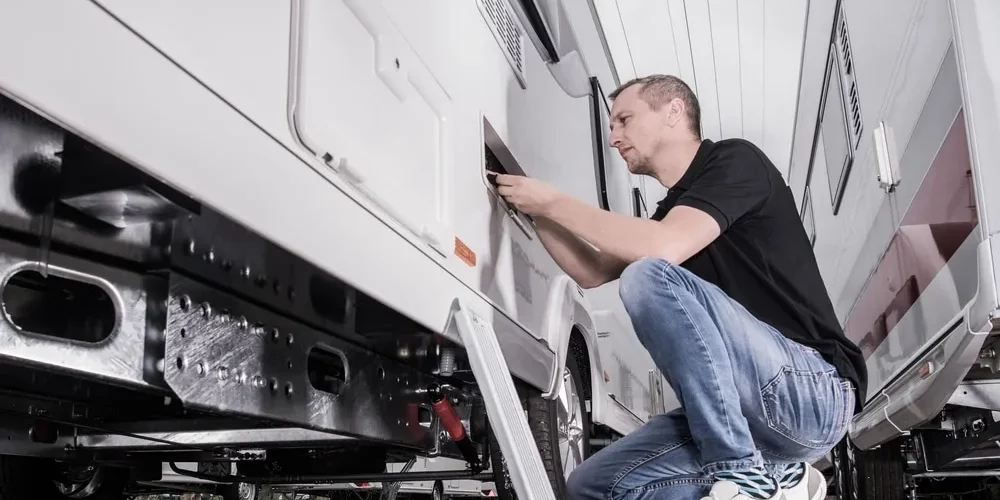Owning an RV provides the freedom to explore the open road and enjoy the great outdoors with all the comforts of home. However, like any vehicle, RVs require regular maintenance and inspections to ensure they remain safe and reliable. Regular RV inspections are crucial for preventing breakdowns, extending the lifespan of your RV, and ensuring a smooth and enjoyable travel experience. Here’s why regular RV inspections are so important.
1. Ensuring Safety
Mechanical Systems
One of the primary reasons for regular RV inspections is to ensure the safety of the mechanical systems. This includes the engine, transmission, brakes, and suspension. Regular checks can identify potential issues before they become major problems, reducing the risk of breakdowns and accidents.
Electrical Systems
Inspecting the electrical systems is essential for preventing electrical failures and fires. Regularly checking the battery, wiring, and connections can ensure everything is functioning properly. This includes both the RV’s 12-volt system and the 120-volt system used when plugged into shore power.
Propane System
The propane system powers many RV appliances, such as the stove, refrigerator, and heater. Regular inspections of the propane tanks, lines, and connections are vital for preventing leaks and ensuring safe operation. Propane leaks can be dangerous and even deadly if not addressed promptly.
2. Extending the Lifespan of Your RV
Preventive Maintenance
Regular inspections help identify wear and tear on various components of your RV. By addressing these issues early, you can prevent them from causing more significant damage. Preventive maintenance, such as oil changes, tire rotations, and fluid checks, can significantly extend the lifespan of your RV.
Keeping Systems in Optimal Condition
Regularly inspecting and maintaining systems like the plumbing, HVAC, and appliances ensures they remain in optimal working condition. This not only extends their lifespan but also keeps your RV comfortable and functional.
3. Saving Money in the Long Run
Early Detection of Issues
Identifying and fixing minor issues during regular inspections can save you money in the long run. Small problems, if left unattended, can lead to costly repairs or replacements. Regular maintenance helps you avoid these expensive surprises.
Improving Fuel Efficiency
Well-maintained mechanical systems and properly inflated tires can improve your RV’s fuel efficiency. Regular inspections and maintenance help ensure your RV runs smoothly, saving you money on fuel costs over time.
4. Enhancing Your Travel Experience
Reducing the Risk of Breakdowns
Nothing can ruin a vacation faster than an unexpected breakdown. Regular inspections reduce the risk of mechanical failures, ensuring you spend more time enjoying your trip and less time dealing with repairs.
Ensuring Comfort and Convenience
Maintaining your RV’s systems and appliances ensures a comfortable and convenient travel experience. From a functioning air conditioner to a reliable water heater, regular inspections keep everything in working order, so you can focus on enjoying your adventure.
5. Maintaining Resale Value
Keeping Records
Regular inspections and maintenance records can enhance your RV’s resale value. Potential buyers are more likely to pay a higher price for a well-maintained RV with documented service history.
Preserving Condition
Consistent upkeep preserves the overall condition of your RV. This includes both the interior and exterior, from the paint and seals to the furnishings and fixtures. A well-maintained RV looks better and lasts longer, making it more appealing to future buyers.
6. Key Areas to Inspect Regularly
Tires and Brakes
Check the condition of your tires for wear, proper inflation, and damage. Inspect the brakes for pad wear, rotor condition, and proper function.
Roof and Seals
Inspect the roof and seals for leaks or damage. Addressing issues early can prevent water damage and costly repairs.
Batteries and Electrical System
Test the batteries regularly and ensure the electrical system is functioning correctly. Look for signs of corrosion or loose connections.
Plumbing System
Check for leaks in the plumbing system, including faucets, pipes, and the water heater. Ensure the tanks are in good condition and functioning properly.
Propane System
Regularly inspect the propane system for leaks and proper operation. Check the tanks, regulators, and connections.
Conclusion
Regular RV inspections are essential for ensuring safety, extending the lifespan of your vehicle, saving money, enhancing your travel experience, and maintaining resale value. By staying proactive with maintenance and addressing issues early, you can enjoy peace of mind and make the most of your RV adventures. Prioritize regular inspections and keep your RV in top condition for many years of worry-free travel.










